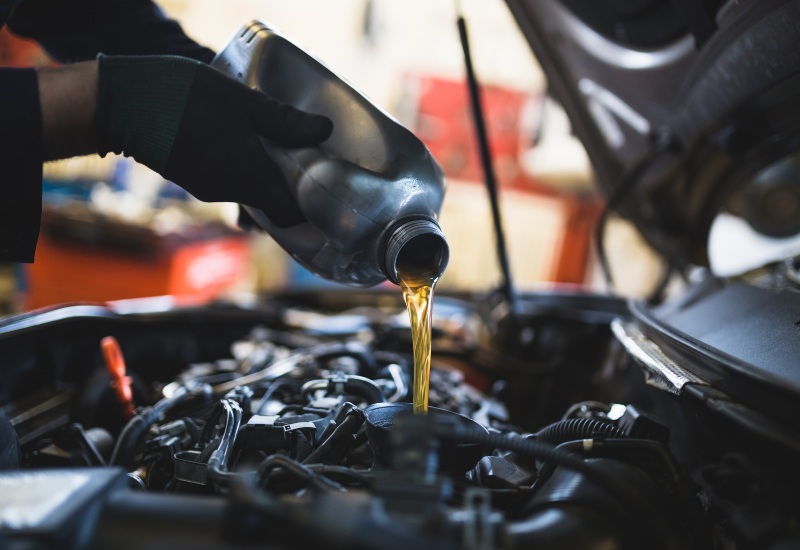How to Change Your Oil Successfully
The Importance of Regular Oil Maintenance for Commercial Vehicles
In the world of B2B logistics, maintaining a fleet of commercial vehicles is vital for business success, as these vehicles play a crucial role in the timely delivery of goods and services. An important aspect of this maintenance is making sure engine oil remains in optimal condition, which directly impacts the performance and longevity of the vehicles. Regular oil changes and thorough checks not only keep commercial vehicles running smoothly, but they also enhance fuel efficiency and reduce the risk of costly breakdowns. Moreover, adhering to a strict maintenance schedule can prevent engine wear and tear, ultimately leading to safer and more reliable transportation. Investing in high-quality oil and adhering to manufacturer recommendations can significantly contribute to the overall efficiency and productivity of a logistics operation, so businesses can meet their commitments to customers without interruption.
This article aims to provide insights into the significance of regular oil maintenance, outline best practices for effective oil management, and highlight the long-term benefits for logistics companies seeking to optimize their fleet performance.

Why Oil Maintenance is Critical for Commercial Vehicles
Engine oil serves as the lifeblood of any vehicle, especially for commercial fleets that endure heavy-duty usage. It lubricates moving parts, minimizes friction, regulates temperature, and prevents engine wear. Without proper oil maintenance, a commercial truck’s engine would experience accelerated wear, reduced efficiency, and a higher risk of breakdowns—potentially resulting in costly repairs and downtime.
Understanding Oil Aging in Commercial Engines
The oil in commercial vehicle engines undergoes stress from continuous use, leading to degradation over time. This aging process can result in:
- Reduced Viscosity: Over time, exposure to high temperatures can break down oil viscosity, making it less effective at providing lubrication.
- Contaminant Accumulation: Dust, dirt, and metal particles can accumulate in the oil, increasing wear on engine components.
- Oxidation and Acid Formation: Prolonged exposure to oxygen can lead to oil oxidation, while combustion by-products can increase acidity, both of which can damage engine parts.
The Consequences of Neglecting Oil Maintenance
Neglecting regular oil maintenance can lead to several adverse effects on commercial vehicles, including:
- Increased Emissions: Old and degraded oil can cause incomplete combustion, leading to increased emissions that may not only violate environmental regulations but also harm company reputation among eco-conscious clients.
- Decreased Engine Performance: An engine running on deteriorated oil may not perform at its best, resulting in sluggish acceleration, reduced power output, and overall decreased reliability, which can impact delivery timelines and customer satisfaction.

Benefits of Regular Oil Maintenance
Maintaining an optimal oil change schedule for your commercial fleet offers numerous benefits:
- Extended Engine Life: Fresh oil reduces wear and tear on engine components, thus prolonging the engine’s lifespan.
- Improved Fuel Efficiency: Well-lubricated engines operate more smoothly, consuming less fuel and reducing operating costs.
- Reduced Risk of Breakdowns: Regular maintenance helps identify potential issues before they lead to severe engine damage, avoiding costly repairs and unplanned downtime.
- Enhanced Vehicle Performance: Keeping oil clean and at the right levels ensures your fleet operates at peak performance, supporting business productivity.
Implementing an Effective Oil Maintenance Program
To guarantee your commercial vehicles continue to perform optimally, consider the following steps for an effective oil maintenance program:
- Set a Regular Schedule: Consult your vehicle manufacturer’s guidelines to establish an appropriate oil change interval based on your fleet’s usage patterns.
- Monitor Oil Quality: Regularly test oil samples for viscosity, contamination, and other indicators of degradation to proactively address potential issues.
- Use High-Quality Products: Invest in quality engine oils and filters designed for commercial vehicles to ensure long-lasting protection and performance.
- Track Maintenance Records: Implement a system to track oil changes and maintenance activities, ensuring compliance and facilitating timely service.
Conclusion
Proper oil maintenance is not just about extending the life of individual vehicles; it’s about maximizing the overall efficiency and reliability of your entire fleet. By adopting a rigorous oil maintenance program, businesses can improve the longevity, performance, and value of their commercial vehicles, ultimately driving success and profitability.
For expert advice and top-notch lubricants designed for your commercial needs, consider reaching out to Red River Oil Company. Serving Texas, Arkansas, Oklahoma, and Louisiana, we are committed to providing the highest standards of service to keep your business moving forward. Contact us today at 870-898-5550 to learn more about how we can support your fleet maintenance needs.
